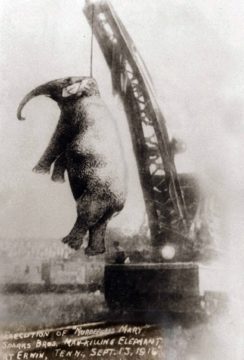Elina Nerantzi in the European Review of Books:
 The core moral thread that holds the modern criminal law doctrine together is that only morally culpable humans should be convicted of a stigmatic criminal offense. A pig cannot be a sensible target of blame. Neither can a child, nor a mentally ill person, nor an offender who lacked the necessary « guilty mind » (that is, she did not act with intention, recklessness or criminal negligence), nor an offender who acted in self-defense or in a state of necessity. The culpability principle that stands as the moral foundation of twentieth-century criminal law doctrine is a victory of rationality. The loser, here, is the human id that cannot let go — that asks: « Am I supposed to forgo blame because the conduct of the perpetrator of the crime did not match the legal test of recklessness? »
The core moral thread that holds the modern criminal law doctrine together is that only morally culpable humans should be convicted of a stigmatic criminal offense. A pig cannot be a sensible target of blame. Neither can a child, nor a mentally ill person, nor an offender who lacked the necessary « guilty mind » (that is, she did not act with intention, recklessness or criminal negligence), nor an offender who acted in self-defense or in a state of necessity. The culpability principle that stands as the moral foundation of twentieth-century criminal law doctrine is a victory of rationality. The loser, here, is the human id that cannot let go — that asks: « Am I supposed to forgo blame because the conduct of the perpetrator of the crime did not match the legal test of recklessness? »
A similar, but newer challenge for that same id: am I supposed to forgo blame because the perpetrator of the crime was a robot? I work in criminal law and artificial intelligence, and the main question in my research is: When an autonomous AI system commits a crime, who is to blame?
More here.
